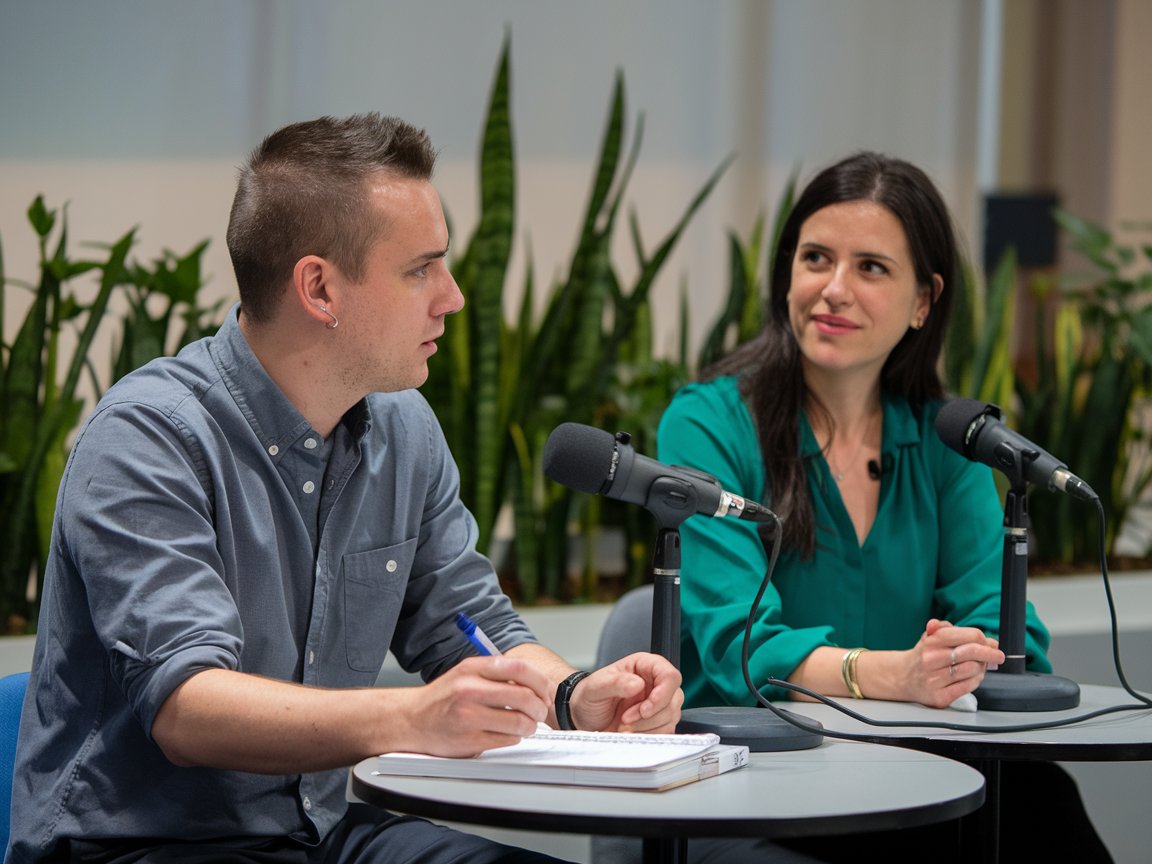
AIdeaFlow: Navigating Ethical Considerations in Voice Cloning
Voice cloning technology has made remarkable strides in recent years, providing innovative solutions for content creation, accessibility, and entertainment. However, as the technology evolves, so do the ethical considerations surrounding its use. This blog post explores the multifaceted ethical landscape of voice cloning, highlighting the responsibilities of creators and users alike. We will also delve into AIdeaFlow, a platform that leverages this technology to produce AI-powered podcasts and audio content.
Understanding Voice Cloning
What is Voice Cloning?
- Voice cloning is the process of creating a synthetic voice that mimics a specific person’s tone, pitch, and speech patterns.
- The technology uses deep learning algorithms and extensive voice sample datasets to generate realistic audio outputs.
- Applications range from personalized virtual assistants to dubbing in films and audiobooks.
How Does Voice Cloning Work?
- Voice cloning utilizes neural networks to analyze and replicate vocal characteristics.
- The process usually involves collecting a sufficient amount of voice samples from the target individual.
- Once trained, the model can generate new speech that sounds like the original speaker.
The Rise of AIdeaFlow
Introducing AIdeaFlow
- AIdeaFlow is a cutting-edge platform designed to simplify the creation of AI-powered podcasts and audio content.
- It integrates voice cloning technology to allow users to produce high-quality audio without the need for extensive recording sessions.
- The platform aims to democratize content creation by making it accessible to individuals and businesses alike.
Features of AIdeaFlow
- User-Friendly Interface: Designed for ease of use, allowing anyone to create audio content without technical expertise.
- Flexible Content Creation: Supports various formats, from podcasts to audiobooks, enhancing creativity and efficiency.
- Voice Cloning Options: Offers a range of voice profiles, enabling users to select or customize voices for their projects.
Ethical Implications of Voice Cloning
Consent and Ownership
- Informed Consent: It’s crucial to obtain explicit permission from individuals whose voices are being cloned.
- Ownership Rights: Questions arise about who owns the rights to a cloned voice and how it can be used commercially.
Misuse and Manipulation
- Deepfake Risks: Voice cloning can be exploited for malicious purposes, including fraud and misinformation.
- Identity Theft: Cloned voices can be used to impersonate individuals, leading to potential harm or financial loss.
Authenticity and Trust
Maintaining Authenticity
- Transparency: Users should disclose when audio content features a cloned voice to maintain credibility.
- Authentic Representation: Cloned voices should accurately reflect the personality and tone of the original speaker.
Building Trust with Audiences
- Ethical Guidelines: Establishing and adhering to ethical guidelines can foster trust between creators and audiences.
- Audience Awareness: Educating listeners about the presence of AI-generated content helps manage expectations and build confidence.
Regulatory and Legal Framework
Current Regulations
- Data Protection Laws: Various jurisdictions have laws governing the use of personal data, including voice data.
- Intellectual Property Rights: Copyright and trademark laws can impact the use of cloned voices in commercial products.
Future Legislation
- Call for Regulation: As voice cloning technology advances, there may be a need for comprehensive regulations to mitigate risks.
- International Standards: Establishing global standards can help address cross-border ethical concerns.
Best Practices for Ethical Voice Cloning
Adhering to Ethical Guidelines
- Obtain Consent: Always seek permission from the voice owner before using their voice for cloning.
- Clear Communication: Notify audiences about the use of AI-generated voices in your content.
Implementing Security Measures
- Data Protection: Secure voice samples and personal data to prevent unauthorized access and misuse.
- Monitoring Usage: Track the usage of cloned voices to ensure compliance with ethical standards.
The Role of AIdeaFlow in Ethical Content Creation
Promoting Ethical Use of Voice Cloning
- Guidelines and Resources: AIdeaFlow provides users with resources to understand ethical considerations in voice cloning.
- Community Engagement: The platform encourages discussions around best practices and ethical dilemmas in AI content creation.
Collaborating with Experts
- Advisory Panels: AIdeaFlow collaborates with legal and ethical experts to refine its policies and practices.
- Workshops and Training: The platform offers training sessions on responsible voice cloning and content creation.
Addressing Public Concerns
Public Perception of Voice Cloning
- Awareness Campaigns: Educating the public about the benefits and risks of voice cloning can alleviate fears.
- Showcasing Positive Use Cases: Highlighting successful applications of voice cloning can shift perceptions towards its potential for good.
Engaging with Critics
- Open Dialogue: AIdeaFlow actively seeks feedback from users and critics to improve its practices.
- Transparency in Operations: Sharing the processes and decisions behind voice cloning technology can build trust.
Conclusion
As voice cloning technology continues to evolve, the ethical considerations surrounding its use become increasingly complex. Platforms like AIdeaFlow are at the forefront of this discussion, promoting responsible practices while harnessing the power of AI for content creation. By navigating these ethical challenges thoughtfully, we can ensure that voice cloning serves as a tool for creativity and innovation rather than a means of deceit and manipulation. The responsibilities lie with both the creators and users to foster a landscape where technology enhances our lives without compromising our values.
By embracing ethical guidelines and promoting transparency, we can navigate the exciting frontier of voice cloning responsibly, paving the way for a future where technology and ethics coexist harmoniously.